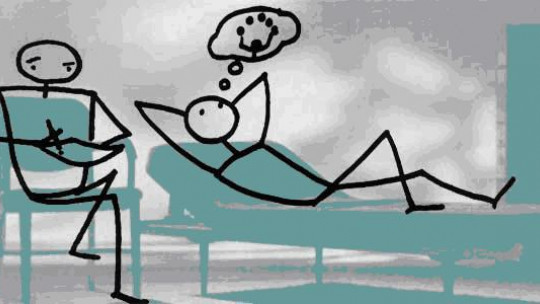A fun story from renowned psychotherapist Milton Erickson about the importance of communication and adapting to each person.

Although we all share common elements, at the same time each person is different and has characteristics that distinguish them from others.
The following story from Milton Erickson, an important psychotherapist who influenced the way this was conceived, reflects the importance of knowing each person and adapting to them in therapy:
In his first years as a psychiatrist, Erickson provided his services in an institution where a patient of about 25 years of age spent his life. He had been arrested, some five years earlier, by the police, due to his disturbed behavior, and taken to the aforementioned institution, but he could never be identified, because he did not have any documents on him, apparently no one had reported his appearance, and Outside of the phrases “My name is George,” “Good morning,” and “Good evening,” he didn’t say anything else that made sense. To every attempt to have a conversation with him, he reacted with long and rapid verbalizations in an artificial language.
There were countless psychiatrists, psychologists, nurses, and social workers – and even the patients of the same institution – who had tried in vain, over the years, to discover a meaning in that salad of words, or to induce George to express yourself clearly. In the end, she had been left alone, and he just paced around, muttering to himself almost tirelessly.
For a few days, Erickson simply sat for an hour in silence next to the patient, who ignored him. One of the following days, he appeared, so to speak, in the empty air, suddenly and loudly pronouncing his name. George did not react until the next day, when Erickson said his name again, but this time addressing him directly. Then George replied with a long salad of words, in an angry tone, without looking at Erickson. Erickson (who had prepared himself thoroughly for the moment) responded to this outburst with another tirade, no less short, but with a friendly accent, which sounded just like the patient’s artificial language, although it contained other pseudo words. George seemed very surprised and when Erickson finished, he responded in the same way, although this time the verbalization sounded interrogative. Erickson “answered” again with friendly and explanatory inflections.
The next day the conversation began with the mutual pronunciation of their respective names, followed by a four-hour uninterrupted word salad from George. Erickson responded with another four-hour salad (although this caused him to go without eating). This was followed by a new verbalization of the patient, this time lasting two hours, to which Erickson – already somewhat exhausted – responded with another of the same duration.
The next day the therapy began again with the same mutual introduction but, after a short exchange in the usual gibberish, George suddenly said: “Speak reasonably, Dr.”, to which he replied: “Why not? with pleasure. What is your last name?” Within a year George had made such progress that he was able to leave the establishment and find a placement. At irregular intervals he would go to the establishment to visit Erickson, and, basically, to talk to him about his life. Invariably, these visits began and ended with a helping of word salad; and sometimes he added dryly: “A little foolishness in life doesn’t do anything bad, does it, doctor?”








